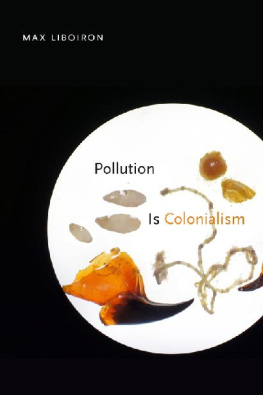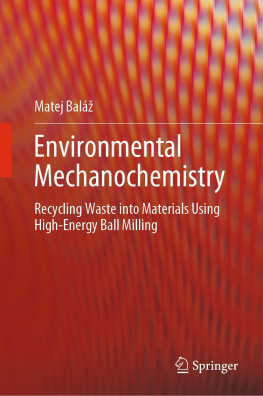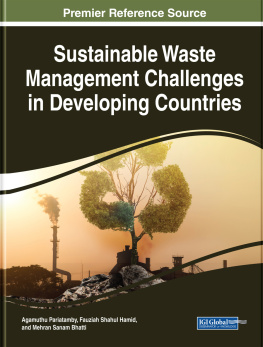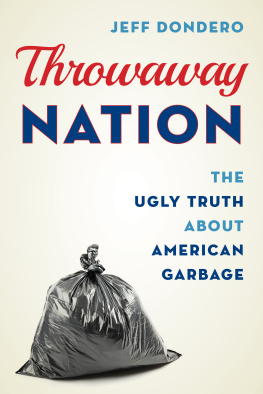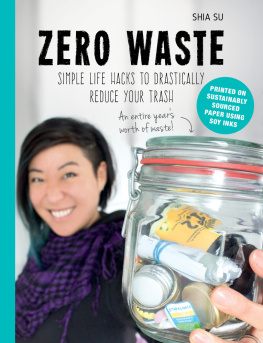Contents
List of Figures
Guide
Pagebreaks of the print version
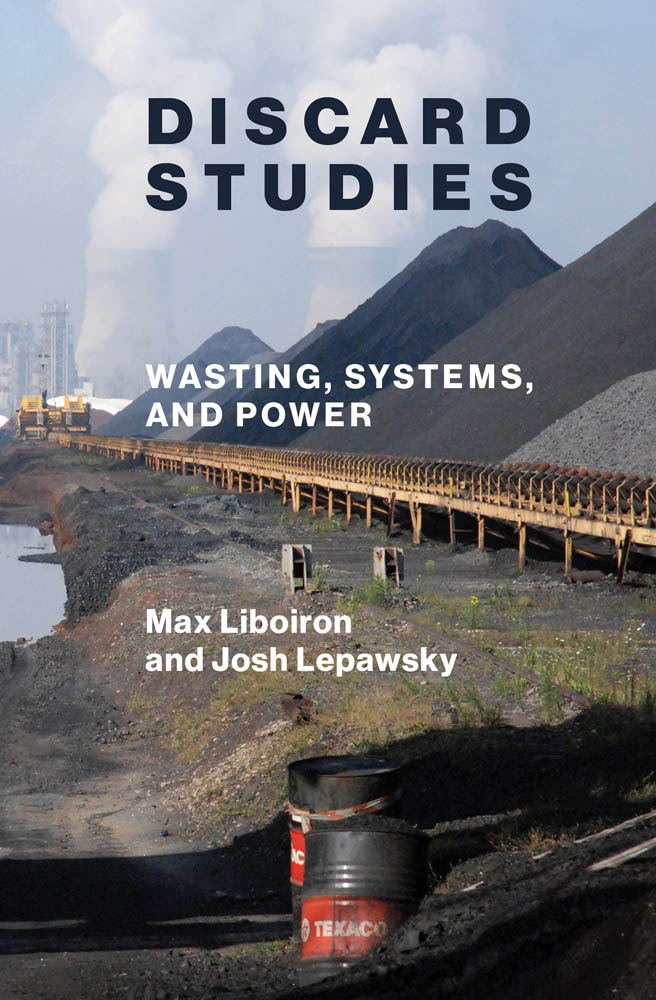
Discard Studies
Wasting, Systems, and Power
Max Liboiron and Josh Lepawsky
The MIT Press
Cambridge, Massachusetts|London, England
2022 Max Liboiron and Josh Lepawsky
This work is subject to a Creative Commons CC-BY-NC-ND license.
Subject to such license, all rights are reserved.

The MIT Press would like to thank the anonymous peer reviewers who provided comments on drafts of this book. The generous work of academic experts is essential for establishing the authority and quality of our publications. We acknowledge with gratitude the contributions of these otherwise uncredited readers.
Library of Congress Cataloging-in-Publication Data
Names: Liboiron, Max, 1980 author. | Lepawsky, Josh, 1972 author.
Title: Discard studies : wasting, systems, and power / Max Liboiron and Josh Lepawsky.
Description: Cambridge, Massachusetts : The MIT Press, [2022] | Includes bibliographical references and index.
Identifiers: LCCN 2021038762 | ISBN 9780262543651 (paperback)
Subjects: LCSH: Waste productsPhilosophy. | Waste productsSocial aspects. | Refuse and refuse disposalPhilosophy. | Refuse and refuse disposalSocial aspects. | Waste (Economics) | Power (Social sciences) | Marginality, Social.
Classification: LCC HD9975.A2 L53 2022 | DDC 363.72/801dc23/eng/20211227
LC record available at https://lccn.loc.gov/2021038762
d_r0
Contents
List of Figures
- The diagram on the left shows the relationships considered when waste is narrowly defined by popular narratives, technical research, and personal experiences. The diagram on the right shows how discard studies approaches waste as a wider set of social, political, and material systems. The righthand side diagram shows part of a circulation network for BPA.
- Source: Image by Max Liboiron, 2021.
- Total annual exports of e-waste from the United States compared to waste acid production at a single smelter that creates copper of which the electronics industry is the second largest consumer in the United States. Circles above the icons are proportionate to the tons they represent.
- Source: Josh Lepawsky (2018).
- Municipal versus industrial solid waste in Canada and the United States.
- Source: Chart by the authors, based on figures from Royte 2005; US EPA 1987; MacBride 2012; Keeling 2012; Statistics Canada 2012; US Congress Office of Technology Assessment 1992.
- Increase of global plastic production, measured in tons per year, from 1950 to 2015. In 1950, the world produced only two million tons of plastics per year. Since then, annual production has increased nearly two-hundred-fold, reaching 381 million tons in 2015. For context, this is roughly equivalent to the mass of two-thirds of the worlds population.
- Source: Graph based on data from Hannah Ritchie and Max Roser 2018.
- Primary global plastic production (in tons per year) by the industrial sector allocation in 2015.
- Source: Hannah Ritchie and Max Roser 2018.
- Snow management planning in St. Johns. The sign (top) is for snowplows, indicating that they should not push snow beyond the sign. These signs are placed behind sidewalks (bottom left), resulting in snow being specifically stored on sidewalks, which make them impassible in both the winter and spring (bottom right).
- Source: Photos by Max Liboiron and Josh Lepawsky.
Acknowledgments
Once upon a time in New York City, Dr. Robin Nagle had a doctoral student named Max Liboiron who was just starting a dissertation and another doctoral student named Samantha MacBride who was just finishing. Each of the three had different approaches to studying systems of waste and waste management, but all were united in a dogged commitment to ethics, accountability, and the implications of their work for those outside of the academy. Indeed, as an anthropologist-in-residence and former sanitation worker (Nagle), the deputy director for recycling in the New York City Department of Sanitation (now director of research and operations at the Bureau of Recycling and Sustainability; MacBride), and an activist (Liboiron), each showed the others the nuances of community accountability in research on waste. Thank you, Robin and Samantha, for those invaluable early lessons as well as your trust and unwavering support of my (Maxs) work. You both set my path on discard studies in the best way possible.
Its not often that listening to an academic talk makes you actually sit up, riveted by what youre hearing, but thats exactly what happened when I (Josh) first learned about Maxs work on ocean plastics. Hearing Max speak in New York City in 2012, I knew that it was essential for me to follow their work from that point on. I would have been reading, learning from, and citing Maxs work no matter where they ended up. What I didnt knownor could have known at the timewas that I would be so lucky as to later be working with Max in the same department and on shared projects such as this book.
This book is based on many years of editing, reading, and writing for the Discard Studies blog. Many of the blog posts authored by us (Max and Josh) are rewritten or referenced in this book. It has been a pleasure to show what happens when you sustain a regular conversation for nearly a decade and can weave those choppy but consistent lessons into a logical, longform text like the one youre holding.
The Discard Studies blog was founded by Robin Nagle, and I (Max) started blogging for the platform as her graduate student, eventually taking over its maintenance and governance. At the time of this writing, Ive produced over 450 posts for the Discard Studies blog and edited and managed countless more. As I became a busier and busier professor at Memorial University, I needed help maintaining this labor of love. I had only to look down the hall for first Josh Lepawsky and then Alex Zahara, both colleagues in the Department of Geography at Memorial, who are now coeditors of the blog. We had also been part of the short-lived but intensely chatty, brainy, and lovely Waste and Science, Technology and Environment (WaSTE) group at the university, along with Arn Keeling, Charles Mather, Dean Bavington, Anne Dance, and Grace Akese. This work at Memorial has been supported by Pam Murphy, Norm Catto, Valarie James, Dominique Lavers, and (as chair) Arn Keeling. Conversations with guest authors, editors, and readers of Discard Studies have also been paramount in developing our thinking. Thank you to the hundreds of authors, guest editors, and subscribers that make Discard Studies what it is.
We also want to thank each other, odd as that might be in this format. While there might be parts of this book that are so Josh and totally Max, the ideas and writing have been unified and developed through our overlapping shared labor and commitment to one another as coauthors. It is exciting, even electrifying at times, to think together on a topic each of us has been considering for over a decade. The nuance, the subtly, and the joy of thinking closely together has been enlivening. At the same time, working together has meant that when one of us is teaching overload and doing full time childcare, or when we suddenly become an executive administrator for the entire university for two years, the other can take over. We are confident that the other has our back, has our best interest in mind, will be brilliant without us, and will always check in. Writing together has been a joy.


